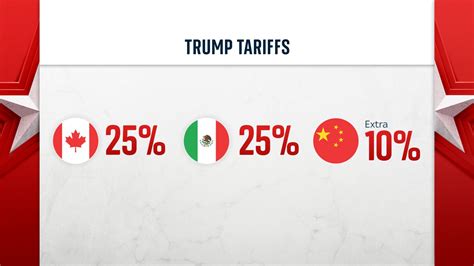“We will also soon be able to augment reported data with machine-sourced data from the myriad of satellites, sensors, and open source repositories out there watching to see where commodities have come from… were they transferred from a different ship on the sea, for instance?”
It was a day marked by President Donald Trump as “Liberation Day,” coinciding with the announcement of another round of tariffs. Amidst this atmosphere of trade tensions, a web3 startup named Watr is making waves with its ambitious goal to automate tariff tracking for goods entering and leaving the United States through its innovative blockchain platform.
While bold claims are not uncommon in the realm of web3 startups, Watr’s approach seems to carry weight due to its existing partnerships with prominent companies in the mining and automotive sectors. Led by industry veterans formerly associated with Shell, BP, and JP Morgan, including Maryam Ayati who spearheaded global origination and investment at Shell Trading, Watr boasts a leadership team that brings a wealth of experience and expertise to the table.
“Some non-western governments we’ve spoken to say that Western-country commodities traders sometimes claim that a commodity they’ve bought will be going to, for example, Europe, but then it’s sent to, for example, an Asian market.”
The core concept behind Watr’s platform lies in its ability to validate commodities efficiently using blockchain technology. By incorporating elements such as decentralized IDs for institutions and digital fingerprints for raw materials, Watr aims not just at revolutionizing trade processes but fundamentally transforming trust mechanisms within global commerce.
As Ayati explains passionately about their vision: “This isn’t about token hype. It’s about transforming how trust, traceability, and liquidity work in the real world.” With an initial focus on tracing commodity provenance based on environmental regulations like CO2 emissions and ESG criteria shifting towards sanctions and tariffs monitoring post-ESG era fallout; Watr seeks to ensure compliance even before transactions materialize.
Recently announcing its shift to the Avalanche blockchain network developed by Ava Labs—known for enabling customizable “sovereign chains” tailored for specific industries—the move signifies Watr’s strategic adaptation towards scalability within commodity trading dynamics. The utilization of Avalanche puts Watr in esteemed company alongside financial heavyweights like JP Morgan and Citibank who embrace this cutting-edge blockchain infrastructure.
“We’ve seen plenty of grand claims from web3 startups on supply chains… if Watr can truly bring pre-trade tariff validation ‘onchain’ to scale… this could mark a serious inflection point for blockchain adoption in global trade.”
While many previous attempts at implementing blockchain solutions in commodities trading have faltered over time despite initial fanfare—like IBM’s partnership with “The Seam” or joint efforts by ING, Shell among others; industry experts view Watr’s ambitious plans cautiously yet optimistically. Keld van Schreven from KR1 highlights that success hinges on market testing while acknowledging potential impact if Watr manages to deliver scalable pre-trade tariff validations seamlessly within major players’ backing.
As global trade faces turbulent waters amidst tariff uncertainties impacting economies worldwide—the promise held by startups like Watr showcases glimpses into how innovation driven by blockchain technology could potentially steer international commerce towards more transparent horizons. Time will tell whether these aspirations translate into tangible results across real-world transactions beyond pilot phases as industry participants closely monitor developments heralding transformative shifts within traditional trade landscapes.

